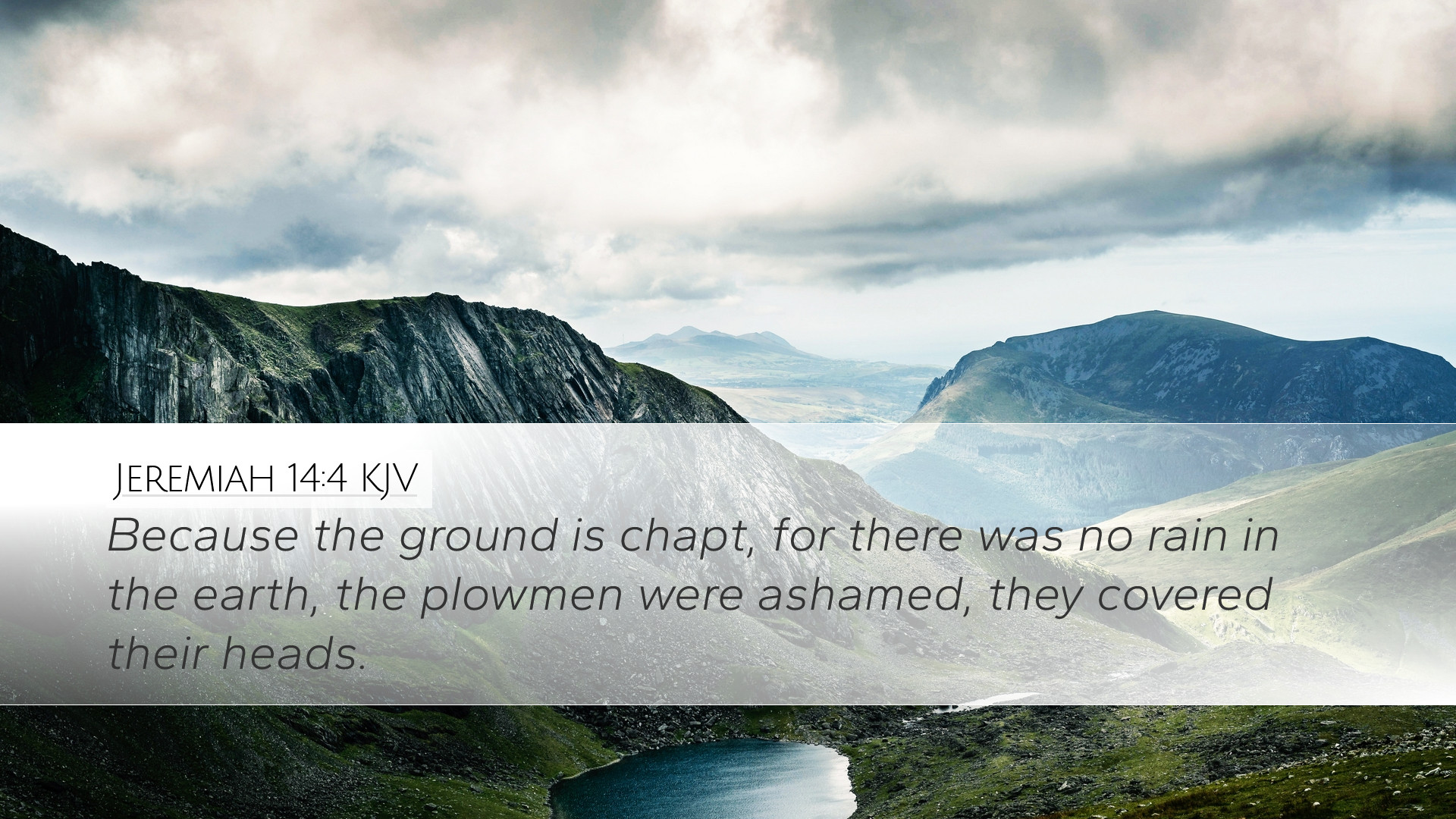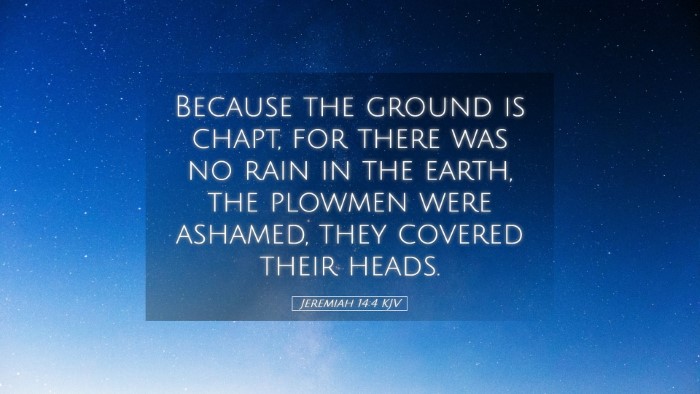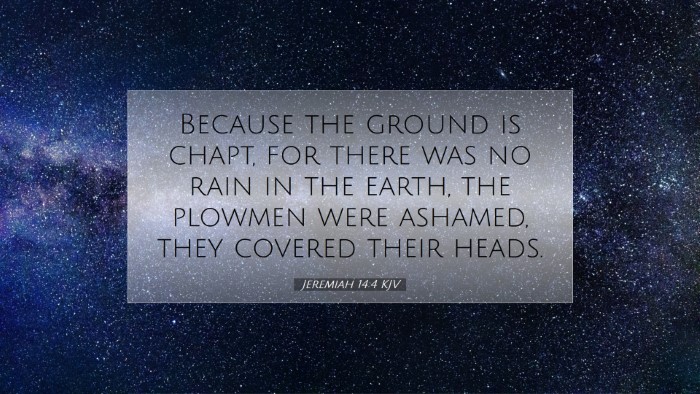Commentary on Jeremiah 14:4
Text of Jeremiah 14:4 (NIV): "Judah mourns, and her gates languish; they mourn for the land, and the cry of Jerusalem goes up."
Contextual Background
The Book of Jeremiah is set in a tumultuous period in the history of Israel and Judah, marked by political instability, spiritual decay, and impending judgment. Jeremiah, known as the "weeping prophet," was called by God to deliver messages of both warning and hope to a nation that had turned away from Him. Chapter 14 specifically addresses the severe drought and famine affecting Judah, symbolizing God’s judgment and the people's grievous state before Him.
Verse Analysis
Jeremiah 14:4 captures a poignant moment of lamentation in Judah. The gates of the city, which typically signify strength and prosperity, are described as languishing, indicating a state of despair. The mourning for the land suggests a deep connection between the spiritual health of the people and their physical environment.
Insights from Matthew Henry
Matthew Henry highlights the dual nature of mourning in this verse. He notes that the mourning of Judah is both a reflection of their physical circumstances—stricken by drought and famine—and a spiritual indicator of their condition before God. Henry elaborates that the mourning arises from the sense of loss, not only of resources but also of God’s presence and favor. The gates languishing represents a metaphor for the walls of protection surrounding the people, now diminished.
Insights from Albert Barnes
Albert Barnes provides a detailed exploration of the implications of this verse. He asserts that the mourning indicates a collective awareness of sin among the people. The cry of Jerusalem symbolizes both desperate prayer and an acknowledgment of their plight. Barnes points out the significance of the gates, which traditionally served as places of judgment and governance, now stand as witnesses to the decay and demise of a once-vibrant society. This shows the correlation between societal wellbeing and the spiritual fidelity of its people.
Insights from Adam Clarke
Adam Clarke emphasizes the geopolitical and religious context surrounding this verse. He explains that the drought was not merely a natural disaster but a sign of divine displeasure against the backdrop of idolatry and disobedience prevailing in the land. Clarke interprets the lamentation of Judah as a call to repentance, suggesting that the consequences of sin affect not only the individual but the entire community. The inflection of mourning reflects both personal and communal grief over separation from God's favor and providential care.
Theological Implications
- Spiritual Understanding of Physical Distress: The lamentation indicates an intrinsic link between spiritual fidelity and physical wellbeing, encouraging readers to consider the consequences of collective sin (Henry).
- The Role of Equity and Justice: The mention of the gates losing their vitality suggests a breakdown in social order, emphasizing the need for justice and righteousness (Barnes).
- Call to Repentance: The cry of Jerusalem encourages a response from the populace, challenging them to introspect their relationship with God and seek restoration (Clarke).
Practical Applications
For pastors and church leaders, Jeremiah 14:4 serves as a reminder of the importance of communal lamentation in response to societal sin. Encouraging congregations to recognize and cry out against the decay of moral and spiritual values can be a path toward renewal.
For students and scholars, this verse invites exploration into the implications of societal sin and divine judgment throughout biblical history—it reflects a timeless principle that moral failure can lead to physical and spiritual desolation.
The text serves as a warning to modern believers about the consequences of straying from God's paths, urging a return to covenant fidelity and integrity, with a reminder that mourning, if rooted in genuine repentance, can lead to restoration.
Conclusion
Jeremiah 14:4 encapsulates the profound sorrow of a nation alienated from God, while also offering an invitation to repentance and restoration. By weaving together the insights of well-respected biblical commentators, this analysis reveals the multifaceted meanings embedded within this verse, providing a rich resource for further study, reflection, and application. As we consider the mourning of Judah, may we also be moved to examine our own lives and communities in light of God’s holiness and love.


